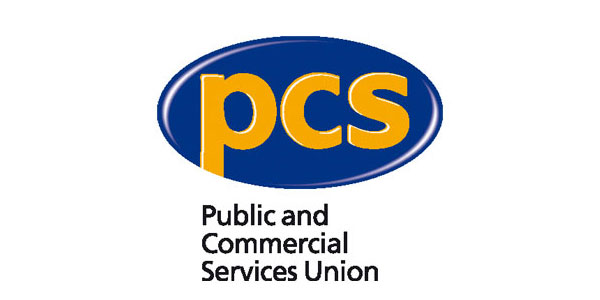

By Rebecca Anderson
The Public and Commercial Services Union (PCS), the main civil service union is deciding whether to ballot its members for strike action over pay and pensions.
The union’s pay campaign takes into account the rising cost of living and years of pay freezes and caps. It demands a 10% pay rise, underpinned by a living wage of £15 per hour for the lowest paid. However, the government has announced it will only offer 3%, far below inflation and unlikely to cover even just the rising cost of electricity and gas.
The union is also calling for a 2% reduction in pension payments, citing clear evidence that members have been forced to overpay since 2019. The average member has lost £1,000 of earnings over this time, with no increase in the amount of pension they will receive in retirement. Outrageously, the government has refused to reduce pension contributions because they are using these to fund court-ordered remedies resulting from their discriminatory 2015 pension reforms.
PCS ran a consultative ballot earlier in the year to test the strength of feeling among members, and the ability of the union to overcome the 50% turnout threshold set by the anti-union laws. The results, announced at the end of March, was a 45% turnout, representing about 70,000 members, with 81% of those willing to take industrial action.
The turnout of 45% represents the disorganisation of the pandemic. Considering however, that the consultative ballot was conducted in the new hybrid working environment, with most offices at only 40% of their pre-pandemic capacity, the result perhaps also reflects the growing anger and desperation around the rising cost of living.
Many in the union, including its Broad Left and Independent Left factions, are calling for disaggregated action. The University & College Union successfully used this tactic to bring out those workplaces that achieved the necessary turnout and re-ballot those that didn’t. Disaggregating would allow the union to at least begin the pay campaign in earnest, though it would not deal with the underlying problems that cause aggregated ballots to fail.
One way to increase turnout is for the ballot to address the specific concerns raised by members in different departments. For example, the DWP has recently introduced the ‘Way to Work’ programme, which forces claimants to attend more regular Jobcentre appointments with no social distancing, and announced 41 office closures and involuntary moves for staff to centralised locations. Surely, a ballot that also took up these issues would achieve a higher turnout in the union’s largest department.
Historically, conference motions from the union’s leadership have often caveated calls to action by saying that the PCS will only strike alongside other unions. This has always been a road to defeat. This year, in particular, with the NHS pay campaign shelved, the local government ballot unsuccessful and the UCU General Secretary proposing a pause to their campaign, we must be willing to take the lead rather than waiting to follow.
The National Executive Committee will shortly announce their decision on whether or not to ballot, and the strategy for the campaign. However, May’s PCS conference will have the final say. The conference must take up the question of disaggregation, a tactic historically opposed by the leadership, and firmly oppose any suggestion that we should wait for other unions before calling our strikes. Rather than the tired tactic of one day protest strikes, easily ignored by the government, we must escalate our action to cause maximum disruption and force our demands on the government.